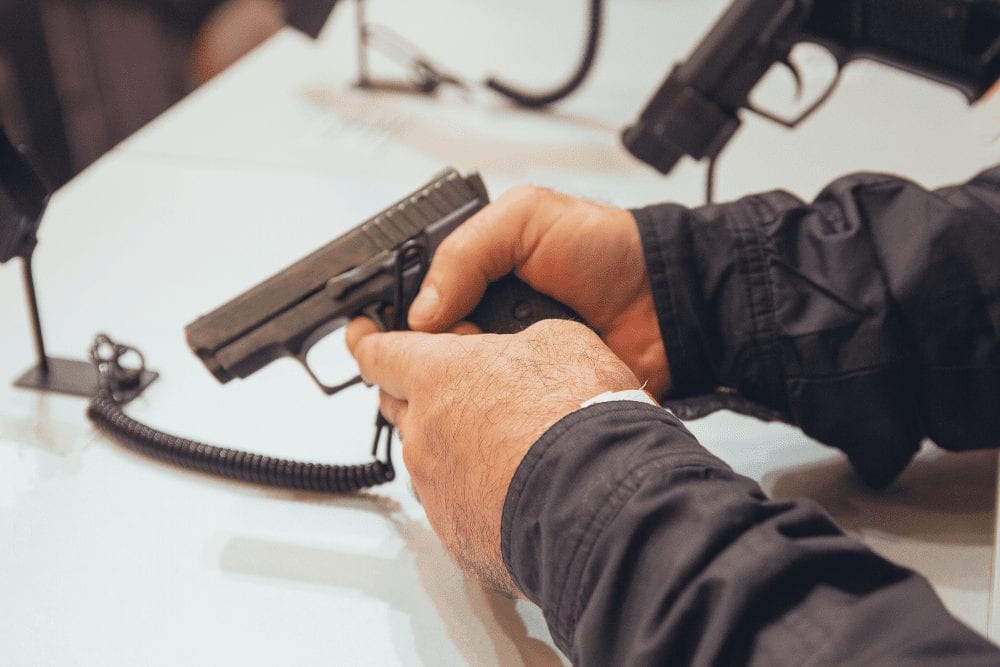In recent years, the intersection of gun laws and domestic violence has garnered increased attention from lawmakers, advocates, and the public. Understanding how these laws impact domestic violence charges is crucial for victims, defendants, and legal practitioners alike. This article seeks to elucidate the complexities surrounding gun legislation as it pertains to domestic violence incidents, examining how restrictions on firearm ownership can influence the legal outcomes for those involved. Various states have implemented unique firearm regulations aimed at reducing domestic violence, including background checks, waiting periods, and prohibitions for individuals with a history of abuse. These measures are designed to enhance the safety of potential victims and deter offenders from committing further acts of violence. However, the application of these laws can vary significantly across jurisdictions, leading to potential legal ambiguities and challenges in prosecution. By exploring the nuances of firearm regulations in the context of domestic violence, this article will provide essential insights for individuals navigating these legal waters, as well as for advocates pushing for reform. Ultimately, understanding the relationship between gun laws and domestic violence charges is vital for fostering safer communities and ensuring justice for those affected by such heinous acts.
– Understanding Gun Laws’ Impact on Domestic Violence
Gun laws play a crucial role in shaping the landscape of domestic violence incidents and the subsequent legal ramifications. Stricter regulations regarding firearm possession, particularly for individuals with a history of domestic violence, aim to reduce the risk of lethal outcomes in abusive relationships. For instance, many jurisdictions have enacted laws that prohibit individuals with domestic violence convictions or protective orders against them from purchasing or possessing firearms. These measures are designed to mitigate the potential for escalation in volatile situations, recognizing that the presence of a firearm can significantly increase the likelihood of fatality during domestic disputes.
The enforcement of gun laws in the context of domestic violence charges also highlights the complexities inherent in the judicial process. Legal consequences for violations of firearm restrictions can further compound the challenges faced by survivors seeking justice. Additionally, the intersection of gun laws and domestic violence often necessitates a coordinated response from law enforcement and social service agencies, emphasizing the importance of comprehensive training and awareness. By understanding the implications of gun laws within domestic violence cases, stakeholders can better advocate for survivors and promote safer community environments.
– Key Domestic Violence Charges Under Gun Legislation
Individuals charged with domestic violence may face a range of serious legal repercussions, particularly when gun laws intersect with these charges. For example, laws typically classify specific domestic violence offenses, such as assault or threatening behavior, as disqualifying factors for firearm possession. This means that those convicted may not only face criminal penalties but also lose their rights to own or possess firearms, potentially for an extended period or even permanently. Moreover, the violation of these gun laws can lead to additional charges, including illegal possession of a firearm, which can exacerbate the legal situation of the accused and complicate the pursuit of legal remedies for victims.
Moreover, the interplay between gun laws and domestic violence charges often necessitates a careful examination of protective orders. When a victim obtains a restraining order, it frequently includes provisions that temporarily restrict the abuser’s access to firearms, requiring immediate surrender of any weapons. Enforcement of these provisions is critical, as non-compliance can lead to further legal action against the offender. In this context, gun laws not only serve as a protective measure for victims but also place significant legal burdens on perpetrators, underscoring the importance of adhering to firearm regulations as part of the broader domestic violence legal framework.
– Navigating Legal Consequences of Gun Laws
Understanding the legal ramifications of gun laws in the context of domestic violence charges is crucial for both victims and accused individuals. For those facing domestic violence allegations, navigating the complex landscape of firearm regulations can be daunting, as a conviction may not only impact immediate sentencing but also long-term rights. Legal counsel is essential to ensure that individuals are aware of the specific statutes that apply in their jurisdiction, as laws can vary widely. Individuals must be informed about the consequences of their actions under local gun laws, especially regarding any firearm-related restrictions that can arise from a domestic violence conviction.
For victims, the integration of gun laws into domestic violence protective measures provides an additional layer of safety. Courts may mandate the surrender of firearms when issuing restraining orders to ensure that the accused cannot access weapons that could be used to escalate the situation. However, the enforcement of these regulations can be inconsistent, making it imperative for victims to seek guidance from legal professionals who understand both domestic violence and firearm laws. Effective advocacy in this area can help to secure the necessary protections while also navigating the complex legal environment surrounding gun ownership and domestic violence charges.
In conclusion, understanding the intersection of gun laws and domestic violence charges is crucial for both legal professionals and the general public. As we have explored, stricter gun regulations can play a significant role in reducing the risk of domestic violence incidents and enhancing the safety of victims. The legal framework surrounding firearms in domestic violence cases not only aims to protect individuals but also highlights the broader societal implications of gun ownership and violence. It is essential for lawmakers, advocates, and community members to remain informed about these laws and their impact in order to foster a safer environment for all. By prioritizing education and awareness, we can work towards more effective policies that address the complexities of domestic violence and gun access.






Leave a Reply